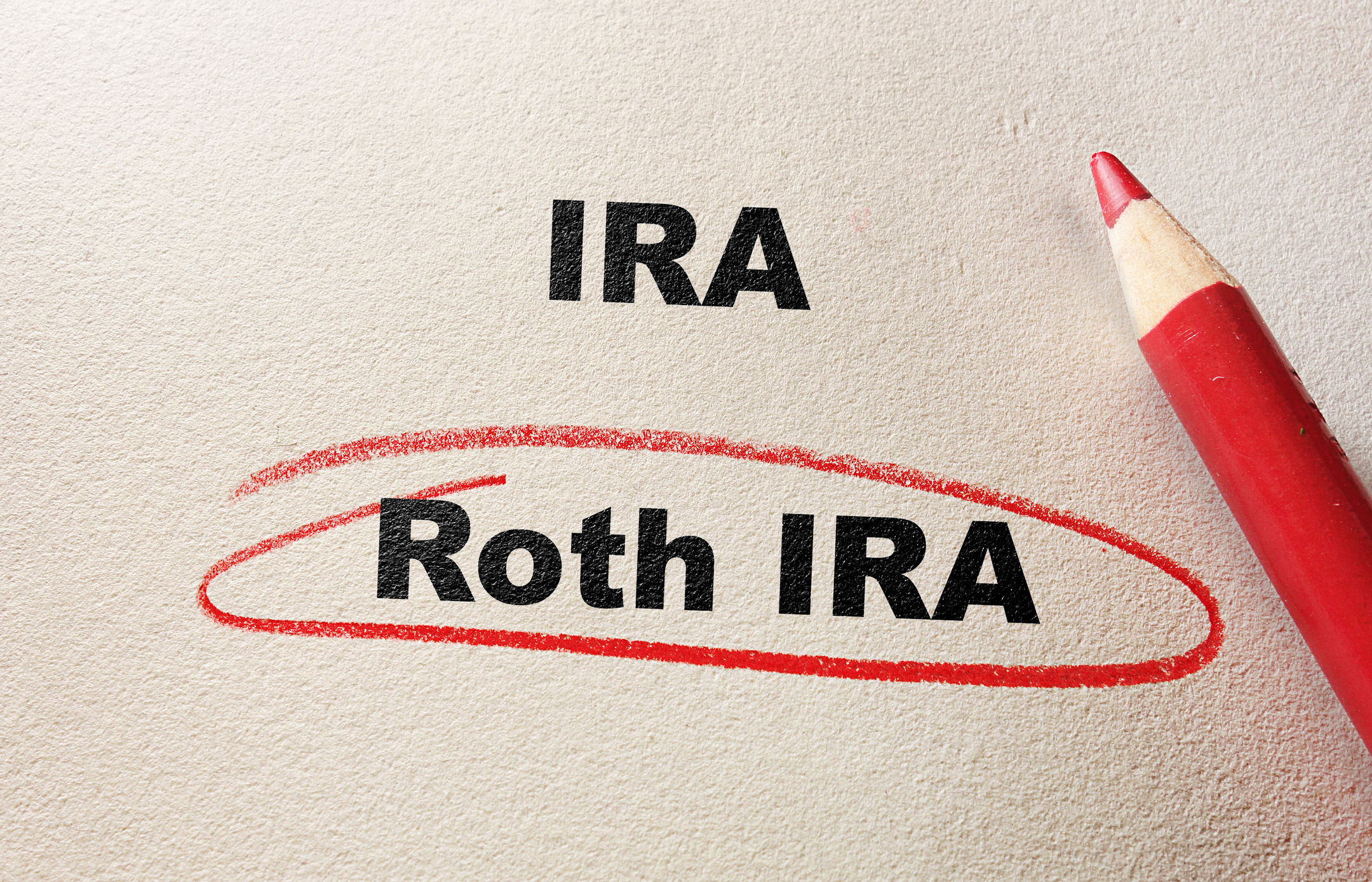Landlord With Rental Income? See if You Qualify for a 20% Tax Break
Many landlords are eligible to take the 20% tax deduction for qualified business income


Profit and prosper with the best of Kiplinger's advice on investing, taxes, retirement, personal finance and much more. Delivered daily. Enter your email in the box and click Sign Me Up.
You are now subscribed
Your newsletter sign-up was successful
Want to add more newsletters?

Delivered daily
Kiplinger Today
Profit and prosper with the best of Kiplinger's advice on investing, taxes, retirement, personal finance and much more delivered daily. Smart money moves start here.

Sent five days a week
Kiplinger A Step Ahead
Get practical help to make better financial decisions in your everyday life, from spending to savings on top deals.

Delivered daily
Kiplinger Closing Bell
Get today's biggest financial and investing headlines delivered to your inbox every day the U.S. stock market is open.

Sent twice a week
Kiplinger Adviser Intel
Financial pros across the country share best practices and fresh tactics to preserve and grow your wealth.

Delivered weekly
Kiplinger Tax Tips
Trim your federal and state tax bills with practical tax-planning and tax-cutting strategies.

Sent twice a week
Kiplinger Retirement Tips
Your twice-a-week guide to planning and enjoying a financially secure and richly rewarding retirement

Sent bimonthly.
Kiplinger Adviser Angle
Insights for advisers, wealth managers and other financial professionals.

Sent twice a week
Kiplinger Investing Weekly
Your twice-a-week roundup of promising stocks, funds, companies and industries you should consider, ones you should avoid, and why.

Sent weekly for six weeks
Kiplinger Invest for Retirement
Your step-by-step six-part series on how to invest for retirement, from devising a successful strategy to exactly which investments to choose.
Getting the right tax advice and tips is vital in the complex tax world we live in. The Kiplinger Tax Letter helps you stay right on the money with the latest news and forecasts, with insight from our highly experienced team (Get a free issue of The Kiplinger Tax Letter or subscribe). You can only get the full array of advice by subscribing to the Tax Letter, but we will regularly feature snippets from it online, and here is one of those samples…
If you earn income from rental properties you may be eligible to claim a nice tax break: The 20% qualified business income (QBI) deduction is for self-employed individuals and owners of pass-through entities, such as LLCs, partnerships and S corporations. These individuals can deduct 20% of their QBI. The write-off also applies to some landlords with Schedule E rental income. There are lots of special rules and restrictions, most of which apply to people with taxable incomes, before the QBI deduction, of more than $383,900 on joint returns and $191,950 for all other returns. The QBI write-off is temporary. It ends after 2025 unless Congress extends it.
There are two ways to qualify for the 20% QBI write-off for rental income.
From just $107.88 $24.99 for Kiplinger Personal Finance
Become a smarter, better informed investor. Subscribe from just $107.88 $24.99, plus get up to 4 Special Issues

Sign up for Kiplinger’s Free Newsletters
Profit and prosper with the best of expert advice on investing, taxes, retirement, personal finance and more - straight to your e-mail.
Profit and prosper with the best of expert advice - straight to your e-mail.
1. The first is if the rental activity rises to the level of a trade or business.
For this purpose, IRS regulations refer to the standard under tax code Section 162, the statute that generally governs the deductibility of trade or business expenses.
There is no statutory or regulatory definition of a Section 162 trade or business. Instead, this determination is based on a taxpayer’s specific facts and circumstances. Some relevant factors are:
- The type of property (commercial or residential)
- Lease terms
- The extent of day-to-day involvement by the lessor or his or her agents
- The significance and type of ancillary services provided under the lease, and
- The number of rentals.
Here are some best practices to treat your rental as a business: Keep expense receipts. Insure your realty. Keep separate bank accounts. And track time and services performed.
2. A second way to qualify rental income as QBI is to meet an IRS safe harbor.
At least 250 hours must be devoted to the rental activity by the taxpayer, employees or independent contractors in a year.
Time spent on the following counts: tenant services, repairs, property management, advertising, collecting rents, negotiating leases and supervising workers.
Hours put in for driving to and from the property, arranging financing and constructing long-term capital improvements aren’t included.
If you own multiple rental properties, you can treat each property separately or aggregate similar rental activities into commercial or residential categories. Those who use the safe harbor must meet strict recordkeeping requirements and attach an annual statement to their returns, as detailed in Rev. Proc. 2019-38.
Contemporaneous records must detail hours, dates, and descriptions of the services and the people who performed them. If the services are done by contractors or employees, the taxpayers must keep logs of the work done by them, as well as proof of payment.
Note: The safe harbor doesn’t apply to property leased under a triple net lease or if the owner’s personal use exceeds the greater of 14 days or 10% of the days rented.
How rental income is reported
Treating rental income as QBI doesn’t change how you report that income. Real estate rental income is usually reported on Schedule E of the 1040. Also, the rental income generally isn’t subject to self-employment tax. If you qualify, you’d take the QBI write-off on Form 1040, line 13 and attach Form 8995 or 8995-A.
This first appeared in The Kiplinger Tax Letter. It helps you navigate the complex world of tax by keeping you up-to-date on new and pending changes in tax laws, providing tips to lower your business and personal taxes, and forecasting what the White House and Congress might do with taxes. Get a free issue of The Kiplinger Tax Letter or subscribe.
Profit and prosper with the best of Kiplinger's advice on investing, taxes, retirement, personal finance and much more. Delivered daily. Enter your email in the box and click Sign Me Up.

Joy is an experienced CPA and tax attorney with an L.L.M. in Taxation from New York University School of Law. After many years working for big law and accounting firms, Joy saw the light and now puts her education, legal experience and in-depth knowledge of federal tax law to use writing for Kiplinger. She writes and edits The Kiplinger Tax Letter and contributes federal tax and retirement stories to kiplinger.com and Kiplinger’s Retirement Report. Her articles have been picked up by the Washington Post and other media outlets. Joy has also appeared as a tax expert in newspapers, on television and on radio discussing federal tax developments.
-
 Quiz: Do You Know How to Avoid the "Medigap Trap?"
Quiz: Do You Know How to Avoid the "Medigap Trap?"Quiz Test your basic knowledge of the "Medigap Trap" in our quick quiz.
-
 5 Top Tax-Efficient Mutual Funds for Smarter Investing
5 Top Tax-Efficient Mutual Funds for Smarter InvestingMutual funds are many things, but "tax-friendly" usually isn't one of them. These are the exceptions.
-
 AI Sparks Existential Crisis for Software Stocks
AI Sparks Existential Crisis for Software StocksThe Kiplinger Letter Fears that SaaS subscription software could be rendered obsolete by artificial intelligence make investors jittery.
-
 Are New Trump $2,000 Stimulus Payments Coming in 2026? What to Know Now
Are New Trump $2,000 Stimulus Payments Coming in 2026? What to Know NowTax Policy A promise of $2,000 tariff dividend checks is raising questions and fueling confusion.
-
 New Bill Would End Taxes on Social Security Benefits in 2026: What Retirees Should Know
New Bill Would End Taxes on Social Security Benefits in 2026: What Retirees Should KnowTax Law Congress could look to high earners to help offset lost revenue and possibly shore up the Social Security program.
-
 Tax Rule Change Could See Millions Lose Health Insurance
Tax Rule Change Could See Millions Lose Health InsuranceThe Kiplinger Tax Letter If current rules for the health premium tax credit (PTC), a popular Obamacare subsidy, aren't extended, 3.7 million people could lose their health insurance.
-
 The IRS is in Chaos
The IRS is in ChaosThe Tax Letter DOGE, departures, data agreements and more are creating havoc at the IRS.
-
 Should You Do A Roth IRA Conversion? Nine Things to Consider
Should You Do A Roth IRA Conversion? Nine Things to ConsiderThe Tax Letter Thinking of converting a traditional IRA to a Roth IRA? The Kiplinger Tax Letter Editor highlights nine factors you should consider before making a move.
-
 Ask the Editor: Reader Questions, April 18 — Amended Returns
Ask the Editor: Reader Questions, April 18 — Amended ReturnsIn our Ask the Editor: Taxes, April 18, round-up — Joy Taylor, The Kiplinger Tax Letter Editor, answers questions on amended returns, mortgages and deductions.
-
 Ask the Editor: Reader Questions, April 11 — IRAs, RMDs and PTPs.
Ask the Editor: Reader Questions, April 11 — IRAs, RMDs and PTPs.Ask the Editor: Taxes, April 11, 2025 — Joy Taylor, The Kiplinger Tax Letter Editor, answers questions on Roth IRAs, RMDs and other retirement accounts.
-
 Ask the Editor: Reader Questions, April 4 — The Tax Bill
Ask the Editor: Reader Questions, April 4 — The Tax BillAsk the Editor: Taxes, April 4 — Joy Taylor, The Kiplinger Tax Letter Editor, answers questions on Trump's tax package, estate tax and Muni bonds.